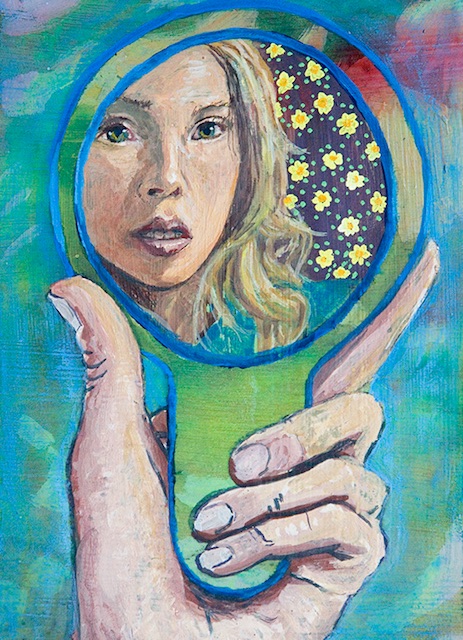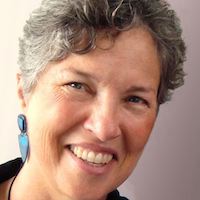
I love my meditation practice.
It keeps my life on an even keel most of the time. But life throws us all into tough situations once in a while. And that’s when I need guidance.
But will a 10-question quiz or a three-step process that I find online give me the help I need? I doubt it!
So, who do I turn to when I can’t figure something out? A friend, a relative, a psychotherapist, an internet advice columnist? Asking “Dear Abby” or any of the “agony aunts” online would never cross my mind.
A friend would certainly be an option, and occasionally I find talking to a therapist useful. But usually I trust my own instincts over other people’s opinions.
Unfortunately, if I’m anxious—which is often the case when I’m confused—I keep spinning round and round from one old, unworkable answer to the next. I can’t seem to find a way out of the impasse. At least not with my conscious, analytical mind. Luckily, that’s not my only choice. I’ve learned that I can tap into my unconscious—my inner wisdom—for new perspectives on my motivations, my emotions, and my thoughts.
Because who knows me best? I do, of course!
So how can I access this mysterious realm of insight? For me, the answer is divination. Reduced to its essence, divination is a means for answering questions that makes active use of intuition. It employs a variety a methods for getting in touch with out-of-the-box thinking. You’ve probably heard of tarot cards or the I Ching. Maybe a friend has even offered to cast runes for you. All of these are divinations that work with pre-programmed answers to your question. The good news of divination is that it’s no longer “one size fits all.” There are many techniques that work for different individuals’ unique experiences, thinking styles, and desires.
Historically, people used divination to answer their pressing questions. Perhaps the most famous example was the Pythia of Delphi, a priestess who accessed her inner wisdom from her shrine in ancient Greece. But there were other sages just as renowned in other parts of the ancient world.
Dedicated to the goddess Hecate, the sibyl of Cumae (near modern-day Naples) was the most celebrated of Roman seers. She reputedly lived in a cave and, according to Virgil’s Aeneid, wrote her prophesies on oak leaves and left them at its entrance. During biblical times, prophets like Joseph interpreted dreams for oracular insight. And ancient Chinese psychics cast oracle bones and read wisdom from the patterns created. There are literally hundreds of techniques like these for accessing wisdom.
What I’ve learned is that divination is a co-creative process. No matter the technique, a divination depends on our particular perceptions and ways of approaching the world, tendencies that affect not only what we notice in our divination, but also how we interpret it.
When I led a nature divination workshop in the University of Wisconsin Arboretum a few years ago, I learned that this can even be a question of internal differences within an individual. After we arrived, I asked the group to ground and center, remind themselves of their oracular question, and then look around at the marshland where we had gathered.
One woman decided to ask two questions rather than just one. She stationed herself on a boardwalk overlooking the marsh, closed her eyes and asked: “How can I find the time and energy to enjoy my life, given the fact that I am extremely busy with work right now?” When she opened her eyes, she immediately noticed the gaps between the swaying grasses and rushes in front of her and realized that she, too, could be flexible like these plants. She could go with the flow and fit pleasure into the small breaks and lacunae in her work life.
Then she closed her eyes again and asked, “What should I do about my nephew?” Opening her eyes on the same scene less than a minute later, she noticed a large tree in the middle distance that appeared sturdy and deeply-rooted. Yes, she thought to herself, I can provide this teenager with the kind of stability this tree represents if I open my home to him.
These two divinations reveal the extent to which an oracular insight depends on a querent’s co-creation. Because she was looking for different types of feedback, at the same place and at almost the same time, the woman in my workshop noticed two very different images.
You can use this technique to answer one of your questions as well:
• First, create a “how” or “what” question, like my student did.
• Then, decide in which natural area you want to perform your divination.
• Once you’ve arrived at your chosen site, meditate for three to five minutes in order to ground and center yourself. Let your meditation create a space separate from your everyday life and a mindset free of your ordinary, analytical thinking.
• State your question under your breath.
• Breathe your question into your surroundings and let them touch you. Let the sounds and ambience of this place transport you to greater receptivity. When you feel ready, open your eyes.
• Notice what draws your attention. Is it an animal, a plant, a cloud? A mountain in the distance? Waves lapping against the shore? Or leaves scudding over the surface of the ground?
• Interpret the object that caught your eye, asking what it means to you. You may need to ask this question several times until the answer resonates with you. This experience of resonance or rightness may come as an “aha,” as some sort of visual “yes,” or even as a feeling that the answer simply “clicks.”
• Thank your oracular object for its wisdom. Expressing gratitude acknowledges your link with the interdependent web of all existence, with the world as your oracle.
As my student’s experiences show, divination can put you more in charge of your life. Like her, using a divination can help you find your own insights. Sometimes it can even deepen your curiosity about each day’s small miracles and let you experience a greater sense of wonder.
But most importantly, it can help you find answers to the questions that life poses and become more confident in your personal choices.
~
~
~
Author: Nancy Vedder-Shults
Image: Flickr/Hartwig HKD
Editor: Travis May
Copy Editor: Callie Rushton
Social Editor: Waylon Lewis







Read 7 comments and reply